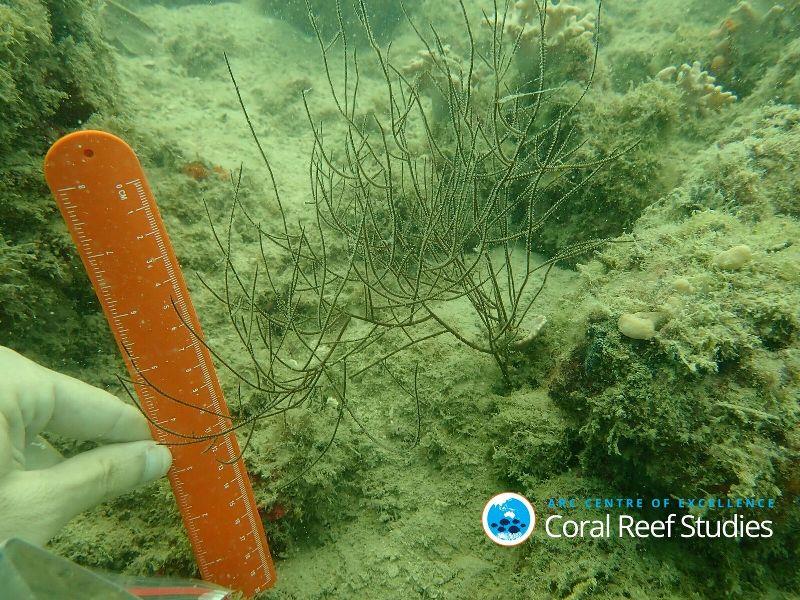
'Treasure trove' of new discoveries highlights gaps in coral knowledge
by Melissa Lyne 26 Jan 2020 04:17 UTC

Black coral found on the GBR © Jeremy Horowitz
Scientists discovered dozens of new coral species on a recent voyage along the length of the Great Barrier Reef. A team of scientists completed a 21-day trip from the Capricorn Bunkers off Gladstone to Thursday Island in the Torres Strait late last year.
"On almost every dive we were finding species that aren't in the books," said Professor Andrew Baird from the ARC Centre of Excellence for Coral Reef Studies at James Cook University (Coral CoE at JCU).
Scientists from Queensland Museum (QM), University of Technology Sydney (UTS) and the King Abdullah University of Science and Technology (KAUST) in Saudi Arabia were also part of the expedition.
Prof Baird said the discoveries are timely as recent molecular advances reveal that much of the existing classification of corals is deeply flawed.
"One hard coral species, Acropora hyacinthus, was previously thought to be found on almost every reef crest along the length of the reef," Prof Baird said.
But the recent molecular advances plus a closer look at the morphology, or shape of the coral, has overturned this assumption.
"What we once thought was a single species is potentially five different species—some with a very limited geographical range," Prof Baird said.
The team also found a number of species not previously seen on the reef.
"The new species we found means that the biodiversity of some groups is up to three times higher than we had thought," said Dr Francesca Benzoni, from KAUST.
JCU PhD student Jeremy Horowitz was on the voyage. He said much of what they found was new.
"Despite the economic and ecological importance of black corals this is the first survey of this group on the reef. It's amazing how much remains unknown and how much more work needs to be done," Mr Horowitz said.
The end of the voyage is just the beginning of a lot of hard work to formally describe this treasure trove.
"The volume of new material is overwhelming," Prof Baird said.
"We need more trained taxonomists—biologists who can group organisms into categories—and more funds to reassess the taxonomy of common groups found on the reef, including hard, soft and black corals."
"Australia is the custodian of the world's largest coral reef system and as a World Heritage-listed site it is the nation's obligation to manage it well."
"Understanding the diversity of species on the reef underpins virtually every area of research and conservation," Prof Baird said.
"It is vital to ensure we have a robust understanding of species diversity and their distributions, but taxonomy isn't currently a research priority. This has to change."
"You can't manage the Great Barrier Reef if you don't know how many species you have, how common they are, or where they are found."